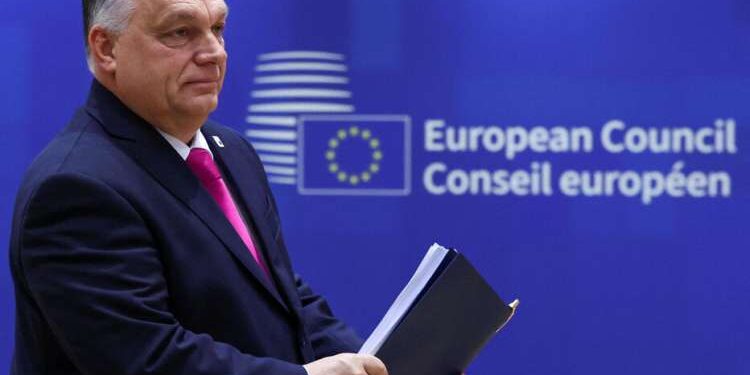The leaders of the European Union took, in the evening of December 14, 2023, a historic decision by initiating negotiations for the membership of Ukraine. However, this memorable moment was tainted by a surprising theater: the withdrawal of Viktor Orban, Hungarian Prime Minister.
Orban had threatened to block the membership of Ukraine using its veto, thus jeopardizing the process requiring a unanimous vote of the 27 member countries.
Faced with this dead end, a pragmatic solution has been adopted. Viktor Orban temporarily withdrew during the vote, allowing the other 26 countries to vote unanimously, thus avoiding a potential blockage. This maneuver marked the start of negotiations for the membership of Ukraine to the European Union.
The reasons for the change of attitude of Viktor Orban remain as mysterious as a complex historical intrigue. It should be noted that just before the vote, he had obtained an envelope of 10 billion euros out of the 30 billion initially blocked by the EU.
These funds were intended for Hungary of Viktor Orban, conditioned by progress in the reform of the rule of law. The circumstances of this transaction arouse questions, in particular with the declarations of the German MEP Daniel Freund which describes it as “the biggest bridge in the history of the EU”.
The unusual calendar becomes even more intriguing because Viktor Orban was uncompromising by opposing its veto with the financial aid of 50 billion euros intended for Ukraine. However, future negotiations are scheduled for January, leaving the door open to new developments.
In the complex process of integration into the European Union, the path remains difficult for Ukraine. Membership must be validated by the Commission, Parliament, and accepted and then ratified by the 27 EU members. Three major criteria must be satisfied: the stability of institutions guaranteeing democracy, a competitive market economy on the European market, and the complete incorporation of European law in national legislation.
Despite the opposition of Viktor Orban with crucial financial aid, Ukraine celebrated its victory. This resilience underlines the determination of the Ukrainian people in the face of challenges. Although the 26 countries have tried to persuade Viktor Orban, the outcome remains uncertain.
Nevertheless, alternatives to overcome this dead end can be envisaged in the complex diplomatic field. Discussions could resume with new proposals or compromises to reach a broader consensus within the European Union.
This delicate period highlights the importance of European solidarity and creative solutions to ensure essential financial support for Ukraine. The next developments will reveal whether the European Union can overcome these obstacles while maintaining its commitment to Ukraine and preserving unity among its members.
Ukrainian President Volodymyr Zelensky expressed his gratitude in a tweet, stressing the importance of encouragement in these difficult times.
“Right now, in Ukraine, many of us feel really encouraged, and it is very important: it allows us to continue. I want to say a huge thank you – to each of you for all that we have managed to accomplish! To all those who strengthen Europe through the unity of Ukraine.
A particular gratitude to all our guys and girls who fight for Ukraine. To those who fight at the moment, defend our freedom, help our soldiers – treat them, train them, provide them with weapons and make these weapons. Everything we do would have been impossible without the heroic bravery of our people, of our nation, which inspires the whole world. »»








